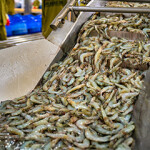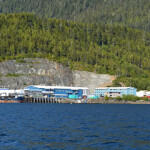Chile algae crisis: Financial loss, potential gains and the future of the Chilean salmon industry
Tide may be turning
The stock prices of nearly all the publicly-held companies trading on the Santiago markets have taken heavy hits as a result of the algal bloom, reported Bloomberg News.
“Everybody’s nervous,” said John Lüer, export manager for Agrosuper, a Chilean seafood production,
The main factor affecting the red tide is warm water temperatures, a result of this year’s El Niño weather pattern. With Chile moving from summer into fall, producers in the affected regions are hoping for cooler temperatures and more rain, which would help mitigate the bloom, Lüer said.
However, the misfortune of some companies could present
“It definitely presents an opportunity,” Valenzuela said. “We have a lot of new best friends.”
Agrosuper anticipates production of 70,000 total tons of farmed salmon for 2016, with 55,000 tons of that being Atlantic salmon and the rest Coho. The company operates 34 farms in Region XI.
For Manterola and his advocacy of the Chilean seafood industry as a whole, it was unfortunate that the algae bloom coincided with Seafood Expo North America in Boston 6 to 8 March, as it distracted from the efforts of the Chilean salmon industry to highlight its efforts to increase sustainability and food safety. One-third of Chile’s salmon exports head to the U.S., and the expo represented a once-a-year marketing opportunity on the home turf of one of Chile’s largest trading partners.
“America is our most important market and we think there’s still much more room to increase the market in America,” he said. “Today, the consumption of salmon very low in the U.S. compared with Europe or Asia, and we think there are more opportunities to grow and consolidate Chile’s leadership position in this market.”
Despite the bad news, Manterola said, SalmonChile and its industry partners were trying to be as transparent as possible.
“We are trying to be very transparent and updating the losses every day. We will not have interruptions in exporting our product, but there is going to be an impact in terms of volume because of the losses,” he said. “Aquaculture in Chile will recover from this and we are focused on the long-term. We have a very strong business and our assets will carry us through this problem.”






Share